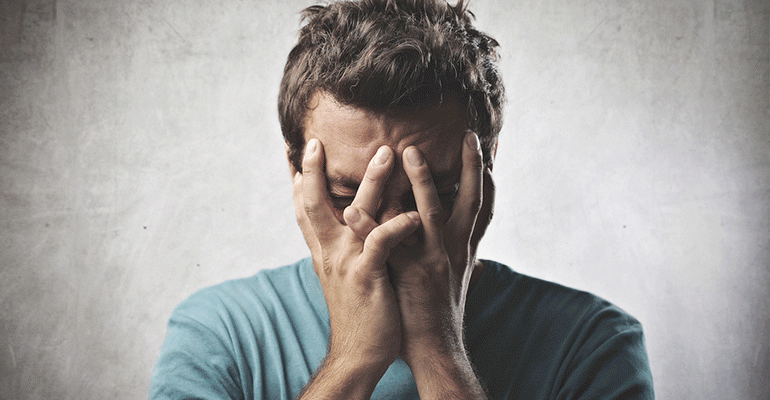Portland Therapy Blog
Local experts share the latest information and resources on all things mental health.
Why do I DO that?!
Posted: August 20, 2014 by Nani Waddoups

Almost everyone has asked themselves the question: “Why do I do things I know are not good for me?”
For you, that might mean repeating some of the following actions, which in excess can be destructive:
• Overeating or eating unhealthy food
• Over-consuming of alcohol or drugs
• Spending time with toxic or abusive people
• Binge-watching Netflix
• Over-exercising / Under-exercising
• Shopping or spending over-budget
• Spending hours lost in the web or on Facebook
So what’s up that? If we intellectually know these things will make us feel terrible, then why do we keep doing them?
The good news is that it is NOT for the following reasons:
• That we have no self-discipline or will power
• That we are emotionally damaged
• That we have a disease
• That we are magnets for negativity
• That we are somehow deficient
There is no inherent defect in our character that turns us in the direction of the Haagen Dazs / House of Cards Combo. Most behaviors that we engage in, that we wish we did differently, are simply habits. Self-harming habits, especially those that go against our conscious sensibilities, usually took hold during a time in our life when we needed coping strategies, and they worked.
Most of us have had at least one episode in our lives during which we felt emotionally vulnerable: perhaps you were unsupported as a child during a scary transition, or felt you didn’t fit in as a teen, or had an extended bout of unemployment with a steady stream of rejection letters. During these emotionally vulnerable times, it is natural to self-soothe, to search for comfort. Some short- term pleasurable diversions might have included eating sugar for that momentary bliss, running for hours to blow off anxiety, distracting yourself with TV, drinking alcohol or smoking weed to “take the edge off,” or hanging out with whoever was available to take our mind off our own pains. These are all effective form of “medicine” for emotional pain.
But what works in triage is not recommended for long-term wellness. The low-grade pain of everyday life requires more considered and less harmful interventions. For starters, identify what is hurting. When you find yourself doing something while simultaneously hearing another part of you asking, “What are you doing? You know this is going to make you feel like crap!” it is an opportunity to stop and consider the conditions at hand:
• What’s going on with me emotionally right now? How do I feel?
• What’s going on with my body? Am I tired?
• What’s going on in my life? Am I overwhelmed? Confused?
• What’s going on in the world? What have I heard or seen that might be disturbing to me?
Being able to state the conditions that may be contributing to your emotional vulnerability allows for an objective assessment of what’s going on. Sometimes processing these questions with a friend or therapist can help gain that objectivity. It also helps connect us to the conscious, adult part of ourselves that can offer compassion, acknowledgment and guidance.
Next, build a list of healthy alternatives to some old habitual self-comforting go-to’s. What are some activities that really feel good to you? Here is a list of ideas to help you get started:
• Take a bath
• Take a nap
• Go to the farmers’ market
• Do yoga or stretch
• Meditate or pray
• Write in your journal
• Cook a meal for a friend
• Go to the movies
• Go for a walk
• Love on a dog or cat
• Organize a mess
• Call someone who loves you
• Cry
• Make a collage
• Play some music
• Sing
• Do a project
• Paint
• Clean out your closet
• Get a massage
• Do a float
• Go swimming
• Go to the bookstore or library
• Read a novel
• Do sit-ups for 5 minutes
• Watch the clouds
• Go canoeing or kayaking
• Go to the zoo
• Go to a beautiful public garden
• Do a puzzle
• Get a pedicure
• Meet a friend for coffee
• Go to an art gallery
• Go to church or synagogue
• Dance
• Take photos
• Go to a nursery
• Knit or sew
• Write a letter
• Pleasure yourself
• Write poetry
• Get out in nature
Make your own list of healthy and loving coping strategies. Make it a really yummy menu of choices that all sound good to you. Keep this list around. I keep mine taped to the inside of one of my kitchen cabinet doors. When I’m tired and go in search of chips, I open the door to some really great alternatives that I know will help me feel better for longer than the salty crunchy short term.
Stay tuned for next month’s article, the flip side of this coin: “Why DON’T I do things I know ARE good for me?”
Tags: mood and feelings, anxiety, addiction and behavior, body issues
Featured Posts
Love Lessons: A Guide to Dating Someone Who is Codependent
Shame, Guilt, Humiliation, and Embarrassment
Why Do People Have Open Relationships?


